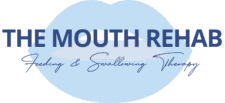As parents, one of the most exciting milestones is hearing your little one’s first words. But once those words start flowing, it’s natural to wonder: “How many words should my child be saying at their age?” Language development in toddlers varies, but there are general milestones that most children meet as they grow.
First Things First! What Even Counts as a Word?
You may be surprised at what counts as a word when young children are learning to speak! Each of these forms listed below are an important step in communication and should be recognized as a part of your little’s language development.
- Words: Clear, spoken words that are used consistently and intentionally, even if they are simplified or not perfectly articulated (e.g., “doggy” for “dog”).
- Approximations: These are simplified versions of words that still convey meaning. For example, “wawa” for water or “baba” for bottle. As long as they are consistent and tied to meaning, they count as words.
- Gestures: Intentional gestures like pointing, nodding, shaking the head, waving, or reaching can be considered part of early language if they are used to communicate specific needs or intentions (e.g., pointing to a toy to indicate wanting it).
- Signs: If a child uses signs (from sign language or made-up signs) consistently to refer to things, actions, or people, these can be counted as words.
- Vocalizations with Meaning: Non-word sounds that are used with intent to communicate, like animal sounds (“woof” for dog) or environmental sounds (a car noise “vroom”), can count as early words.
- Word Combinations: As language develops, children may begin to put together short phrases or word combinations, even if they are only using approximations or a mix of gestures and sounds.
For example, if your 12-month-old verbally says “mama”, shakes their head “no”, signs “all done” and says “da” consistently for “dog! That is already 5 words!

Understanding the Milestones
When we talk about how many words a toddler should say, it’s important to understand the different ranges based on how most children develop. The chart below (adapted from MacArthur-Bates, 2007) highlights milestones for the number of words most children can say by certain ages:
- Milestone: This represents what approximately 90% of children can achieve by a certain age.
- Expected Range: The range between the milestone and the “average” number of words children are expected to say at a given age.
- Around “Average”: The average number of words that about 50% of children can say at certain ages.
- Signs: If a child uses signs (from sign language or made-up signs) consistently to refer to things, actions, or people, these can be counted as words.
- Above Expected Range: This represents children in the top 25% for language development, meaning they may be saying significantly more words than average at a particular age.
| Age | Milestone | Around “Average” | Above Expected Range |
| 12 months | 1 word | 5 words+ | 14 words+ |
| 18 months | 10 words | 50 words+ | 170 words+ |
| 24 months | 50 words | 300 words+ & combining 2 words | 441 words+ |
| 36 months | 250 words | 1000 words+ & combining 3 words | Not available |
Milestones in Toddler Speech Development
- 12 months: By their first birthday, most children can say one word. Common examples include “mama” or “dada.” However, some children will already be saying 5 or more words by this age, and those at the higher end of the spectrum may even reach 14 words or more.
- 18 months: By 18 months, a child is expected to say at least 10 words. Around half of the children at this age can say more than 50 words, and those with more advanced language skills may reach 170 words or more.
- 24 months: By their second birthday, most toddlers will have a vocabulary of at least 50 words. The average child may already be using over 300 words and even beginning to combine two words into simple sentences like “more juice” or “big truck.” Advanced children may have over 441 words at this stage.
- 36 months: By age 3, most children are able to say around 250 words. The average toddler at this age is using over 1000 words and combining three or more words into complex sentences. However, there is no set “above expected range” beyond this point as norms vary widely.
What Do These Numbers Mean for My Child?
It’s important to remember that these milestones are just averages. Children develop at different rates, and it’s perfectly normal for toddlers to fall on different parts of the spectrum. What’s most important is to observe your child’s overall progress, the words they are understanding (not just saying), and how they use language to communicate.
When Should I Be Concerned?
If your toddler seems to be significantly behind in reaching these speech milestones, it might be worth consulting with a pediatrician or speech-language therapist. Delays in speech development could indicate the need for early intervention, but in many cases, children simply develop language at their own pace.
What To Do When You Don’t Understand Your Little!
- Get face-to face: Lowering yourself to your child’s height helps you see their face and lips and gives you important clues to what they are trying to say. It also shows your child that you are fully present and genuinely interested in their message.
- Interpret: When you catch a few familiar words or phrases, repeat them back to your child and ask for confirmation period this gives your child an opportunity to clarify their message and also show that you are actively listening and trying to understand.
- Be honest: Don’t pretend you understood what your child said and don’t ignore them. Be honest and let them know you didn’t understand. You can say quote I’m sorry, I didn’t catch that can you tell me again?”
- Ask for help: Sometimes, words are not enough for littles to express their thoughts clearly. Encourage your child to use gestures, point to objects, or even act out what they’re trying to say.
- Give Choices: Offering choices can help fix a communication breakdown. Use context clues to give your child two or three choices of what you think they want to help narrow it down.
- Acknowledge: Acknowledge your child’s attempts and reassure them that you want to understand what they’re trying to say. You can say, “I see you’re trying to tell me something important” or “I really want to understand what you’re saying.”
Conclusion
While every toddler develops language at their own pace, having a general understanding of what’s typical at certain ages can provide useful guidance. If you’re concerned about your child’s speech, don’t hesitate to seek professional advice, but remember that every child is unique, and language milestones are only one part of their overall development.
Feel free to use the table and ranges from this post to track your child’s speech development and encourage their journey toward more words!
Need more support? Schedule a free 15-minute consultation and we can discuss your options! To where to find free early invention services in your state or if you would like to book a comprehensive evaluation with The Mouth Rehab.

